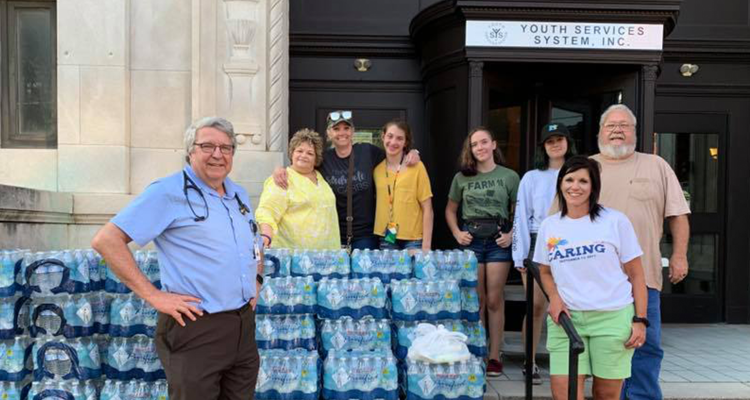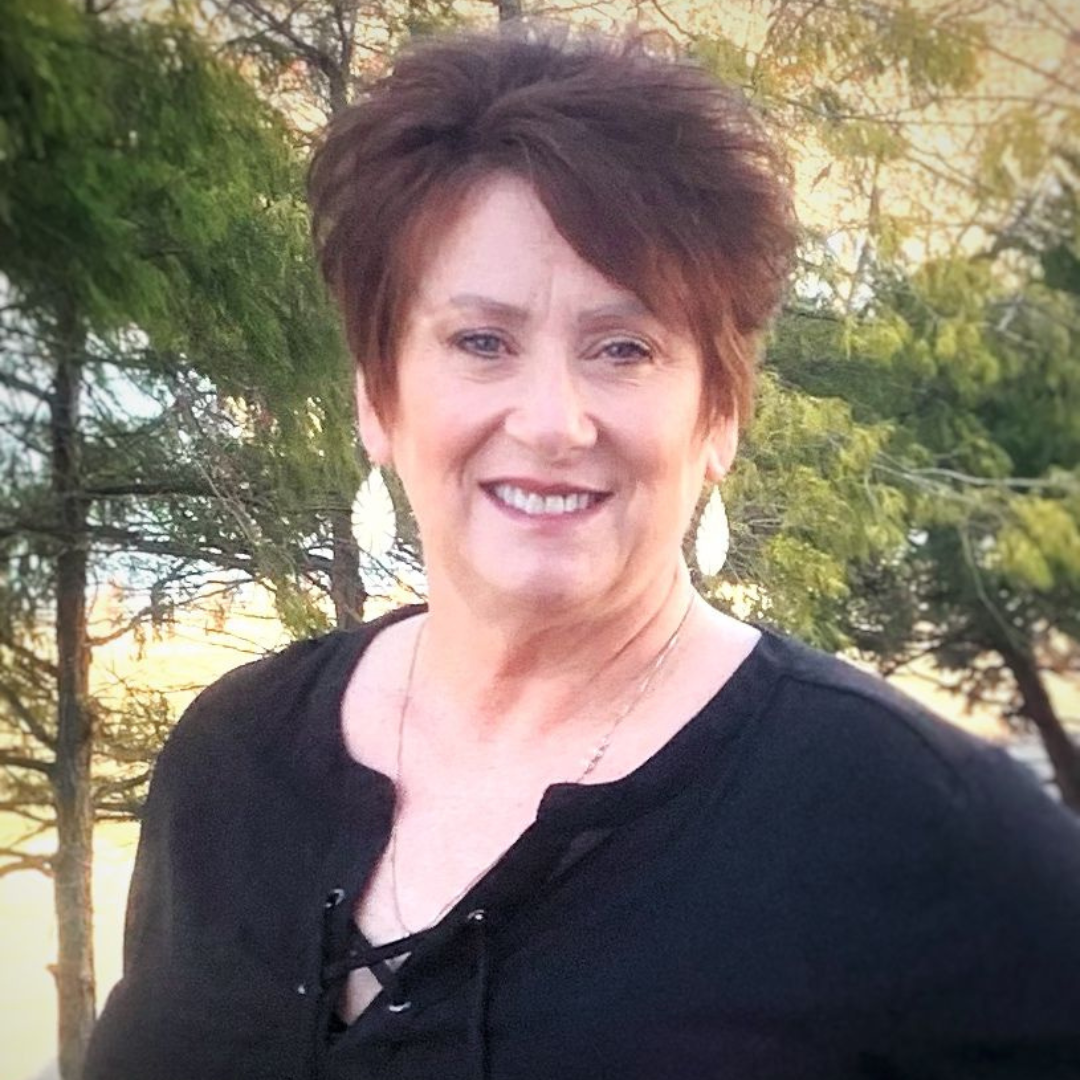No, wait — a second glance reveals that the blankets are moving. You realize that there’s a young woman concealed beneath the jumble of fabric. She looks a bit under the weather, you think to yourself, knowing that it’s flu season. You want to do the right thing, but what exactly would that be under these circumstances?
It’s not always easy to be a Good Samaritan.
WHO DO YOU CALL?
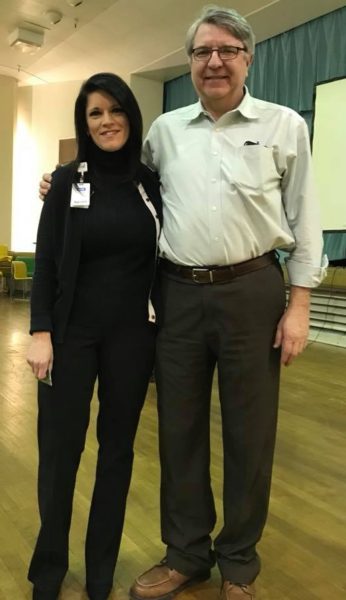
There are many agencies in downtown Wheeling working diligently to provide assistance to those who need a helping hand. But it can be difficult for citizens to know which one to call when a situation arises that requires an urgent response, particularly after business hours. And because Wheeling is blessed to have many resources available to assist those experiencing housing insecurity, we generally don’t have to look farther than the nearest street corner to see someone we think might benefit from utilizing those services.
Chris Villamagna, program manager at Wheeling Heritage, encountered just such a situation recently. “I was leaving work, and in the parking Intermodal by the elevators are two people — I believe a woman and child — under a quilt. All of the homeless shelter offices are closed. The Salvation Army no longer takes women or children,” Villamagna relates.
She says she called the WV 211 number for assistance and was advised to contact a homeless shelter. “But what if their offices are closed?” she wondered.
Villamagna says she felt helpless and unsure where to turn for help. And did the pair shivering beneath that old quilt even want her help?
Out of available options, Villamagna turned to the collective “hive mind” of social media. She posted her experience on Facebook, asking for suggestions. In her heartfelt plea for assistance she wrote, “We are failing as humans.”
Indeed, that would seem to be true when we leave our fellow man sleeping on a public concrete floor in freezing conditions. Fortunately though, one of her Facebook friends tagged Crystal Bauer in the post.
PROJECT HOPE
Bauer is a registered nurse and director of Project HOPE, an outreach service of the Wheeling-Ohio County Health Department. Project HOPE, a volunteer street medicine team, takes medical care directly to the homeless population of Wheeling wherever they may be. In addition to meeting folks under bridges and in downtown encampments, the group recently began making rounds in a wider area thanks to their new fully-equipped medical response vehicle. Weelunk asked Bauer what can be done in situations such as the one encountered by Villamagna.
“Many people don’t know what to say or how to approach those they think are homeless. They want to help; however, they also don’t want to offend those they think might be homeless. Out of fear, they may end up not doing anything at all. I suggest a beverage as a way to open the door. You can’t go wrong with a smile and saying something like, ‘Hi there, I see you’re cold under that blanket. Here’s a warm cup of coffee/hot chocolate to warm you up,’” Bauer advises. “The same thing goes for hot weather and offering a cold drink.” Sometimes simply being “seen” is the only assistance needed. “You don’t have to necessarily do an interrogation or even bring up homelessness. Just being kind and recognizing a fellow human being is enough and appreciated,” explains Bauer.
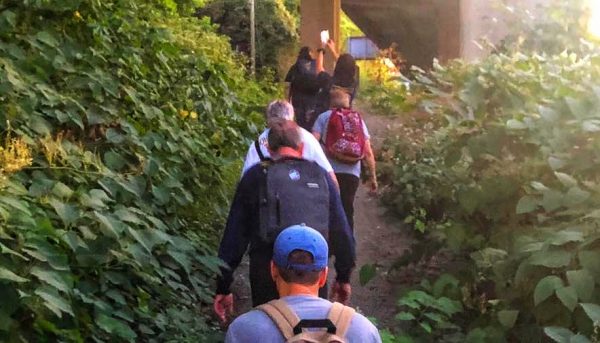
Bauer emphasizes that if the person appears to be having a physical or mental health emergency, calling 911 is, of course, the best response. If a situation seems serious but not urgent enough to warrant a call to emergency services, Bauer suggests calling or texting Project HOPE at 304-639-7443. This is her cell phone number, and she tries to respond the same day if at all possible.
“If Project HOPE cannot respond to the need, I will find someone who can,” Bauer assures the public.
Another issue that often catches the watchful eye of passersby is someone who appears to be homeless in the company of a canine or feline companion. If you notice an animal-related situation that requires attention, you can contact the Ohio County Animal Shelter at 304-547-1013 or by calling 304-234-3661 after business hours. The shelter works closely with Project HOPE to provide food and veterinary care for animals without shelter.
Project HOPE has built close relationships with a large percentage of Wheeling’s homeless population and is an excellent first contact when it comes to helping them. You can learn more about Project HOPE’s mission by visiting their Facebook page. READ more about Project HOPE’s role in the community: Hope for the Homeless — Street Medicine Team Cares for Wheeling’s Most Vulnerable.
STREET MOMS
Street MOMs is another group that has nurtured a deep rapport with Wheeling’s homeless citizens. Susan Brossman and Lynn Kettler are cousins who are dedicated to serving all marginalized populations in our community. The homeless, those suffering from substance use disorder, the mentally ill and anyone who simply needs the love of a mother can find support and TLC from these women. The pair provides tents, blankets, warm clothing and a myriad of other supplies to those in need. In addition, Brossman and Kettler work to clean up what’s left behind when an encampment is abandoned. To reach out to Street MOMs about a situation or to find out more about what they do, visit their Facebook page here.
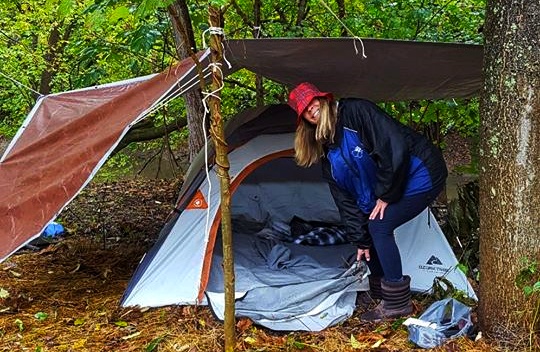
YWCA WHEELING
The YWCA operates an around-the-clock hotline to assist with a host of women’s issues. The hotline number is 800-698-1247. According to YWCA Chief Strategic Officer Heather Lapp, hotline operators can assist with suspected or known domestic violence situations, human trafficking situations, cultural or racial issues, women experiencing homelessness or seeking residential recovery. Lapp shares that any woman looking for assistance of any type is welcome to call the YWCA, and they are happy to provide referrals if the issue isn’t one that falls under the umbrella of services provided by the YWCA.
HOUSE OF HAGAR
House of Hagar Catholic worker Kate Marshall welcomes anyone in need of food or fellowship into her East Wheeling home for a warm meal or a cup of coffee. Marshall says that citizens often reach out to her for guidance on situations involving the homeless.
“Sometimes homeless folks will see someone new who they know needs help and will approach me about them,” Marshall reveals.
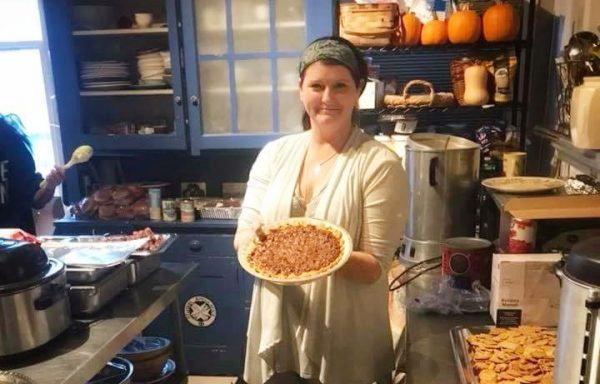
She is glad to share her knowledge as well as her table with anyone who’s interested. If you know of someone who could use some encouragement and a hot plate among friends, contact House of Hagar via the community’s Facebook page.
Marshall also offered praise and gratitude to Villamagna for getting involved in the situation she witnessed. “Chris had a very good perspective on how to practice awareness and not just walk by. She was the catalyst to helping two very sick folks with the flu be given permission to get into the shelter early.” READ more about the House of Hagar: House of Hagar Sees Christ in Each of Us.
CATHOLIC CHARITIES
Catholic Charities Neighborhood Center is located at 125 18th St. During daytime hours, they offer meals, laundry facilities, case management services, a food pantry and various other social services. The center can be reached by calling 304-232-7157.
YOUTH SERVICES SYSTEMS/WINTER FREEZE SHELTER
Youth Services Systems is located at 87 15th St. They can be reached by phone at 304-233-9627 or 800-977-8918. YSS offers help with any situation involving at-risk youth, such as transitional living and housing, mental health counseling and many other services. The agency also operates the Winter Freeze Shelter from Dec. 15 through March 15. This shelter provides guests with warm, safe overnight shelter from 9 p.m. until 7 a.m. as well as other types of assistance such as clothing and transportation. READ more about the Winter Freeze Shelter: Youth Services System Opens Winter Freeze Shelter Early for Women.
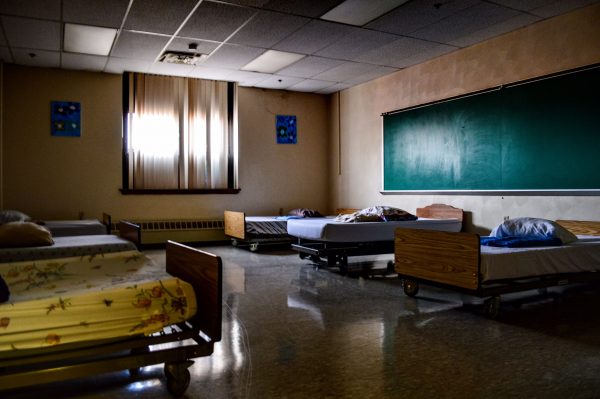
SALVATION ARMY
The Salvation Army, 140 16th St., provides shelter for men not served by traditional homeless shelters. They also offer a number of other services. For additional details about the Salvation Army’s programming, call 304-233-4400.
THE SOUP KITCHEN OF GREATER WHEELING
The Soup Kitchen at 1610 Eoff St. serves lunch daily and provides other services for adults and families with children. Their Just for Kids program meets every Wednesday from 3:30-5:30 p.m. Kids are welcome to enjoy a meal and activities in a welcoming and caring environment. Just for Kids also holds an annual picnic and provides holiday gifts and school supplies. For more information, give them a call at 304-233-2992 or visit their Facebook page here.
WHEN IN DOUBT, CALL 911
If you aren’t sure if a situation qualifies as a bonafide “emergency,” it’s best to err on the side of caution. Wheeling Police Chief Shawn Schwertfeger encourages the public to utilize the local 911 system sooner rather than later if an issue seems serious.
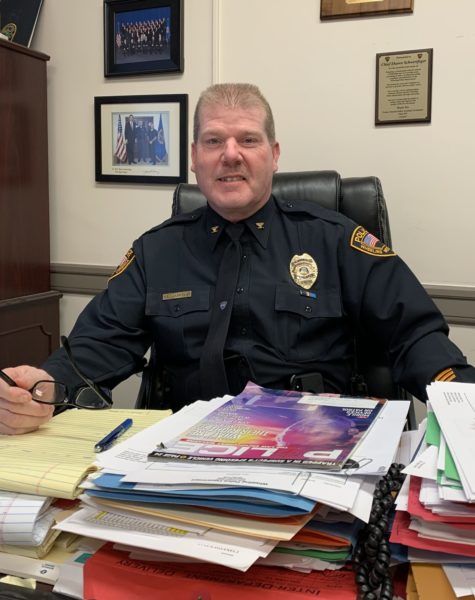
“We encourage people to always report incidents even if they believe them to be minor,” Schwertfeger stresses. “Call 911 rather than the front desk number.” The reason for this is two-fold. First of all, calls made to 911 dispatch are recorded for future reference, which can sometimes be important to a case down the road. Secondly, the police department analyzes the data from 911 calls in order to pinpoint areas of concern. “For example, if we get five calls about a suspicious heavy-set white male subject watching children near a playground, we can spot a pattern to this behavior even if he is no longer there when the officers respond to the call. This allows us to be proactive instead of simply responding to dispatched calls,” the chief explains.
When calling 911 about an incident of any kind, citizens should be prepared to tell the dispatcher where you are and how you can be reached later if the officers have questions or need more information. If you are able to stay nearby and keep yourself out of harm’s way, Schwertfeger said that can be helpful to responding officers. However, he emphasizes that the members of the public should make their own safety top priority in any situation. Once police arrive, stay where you are until approached by officers for your statement.
“For everyone’s safety, please do not approach an officer who is responding to your call. If you indicated that you’d be nearby when you called, he knows that already and will come to you as soon as he’s able to do so,” says Schwertfeger.
Sometimes those most in need of help or services don’t have the means to procure those resources for themselves. That’s where we Good Samaritans come in. There is no need for us to “fail as humans” when all it might take to help our fellow man or woman is a cup of coffee offered with a smile or a quick call to the proper agency.
Like the Good Samaritan, may we not be ashamed of touching the wounds of those who suffer, but try to heal them with concrete acts of love — Pope Francis
• A lifelong Wheeling resident, Ellen Brafford McCroskey is a proud graduate of Wheeling Park High School and the former Wheeling Jesuit College. By day, she works for an international law firm; by night, (and often on her lunch breaks and weekends) she enjoys moonlighting as a part-time writer. Please note that the views expressed in her writing are solely her own and do not necessarily reflect those of anyone else, including her full-time employer. Through her writing, Ellen aims to enlighten others on causes close to her heart, particularly addiction, recovery and equal rights. She and her husband Doug reside in Warwood with their clowder of rescued cats, each of whom is a direct consequence of his job as the Ohio County Dog Warden. Their family includes four adult children, their spouses and several grandkids.


